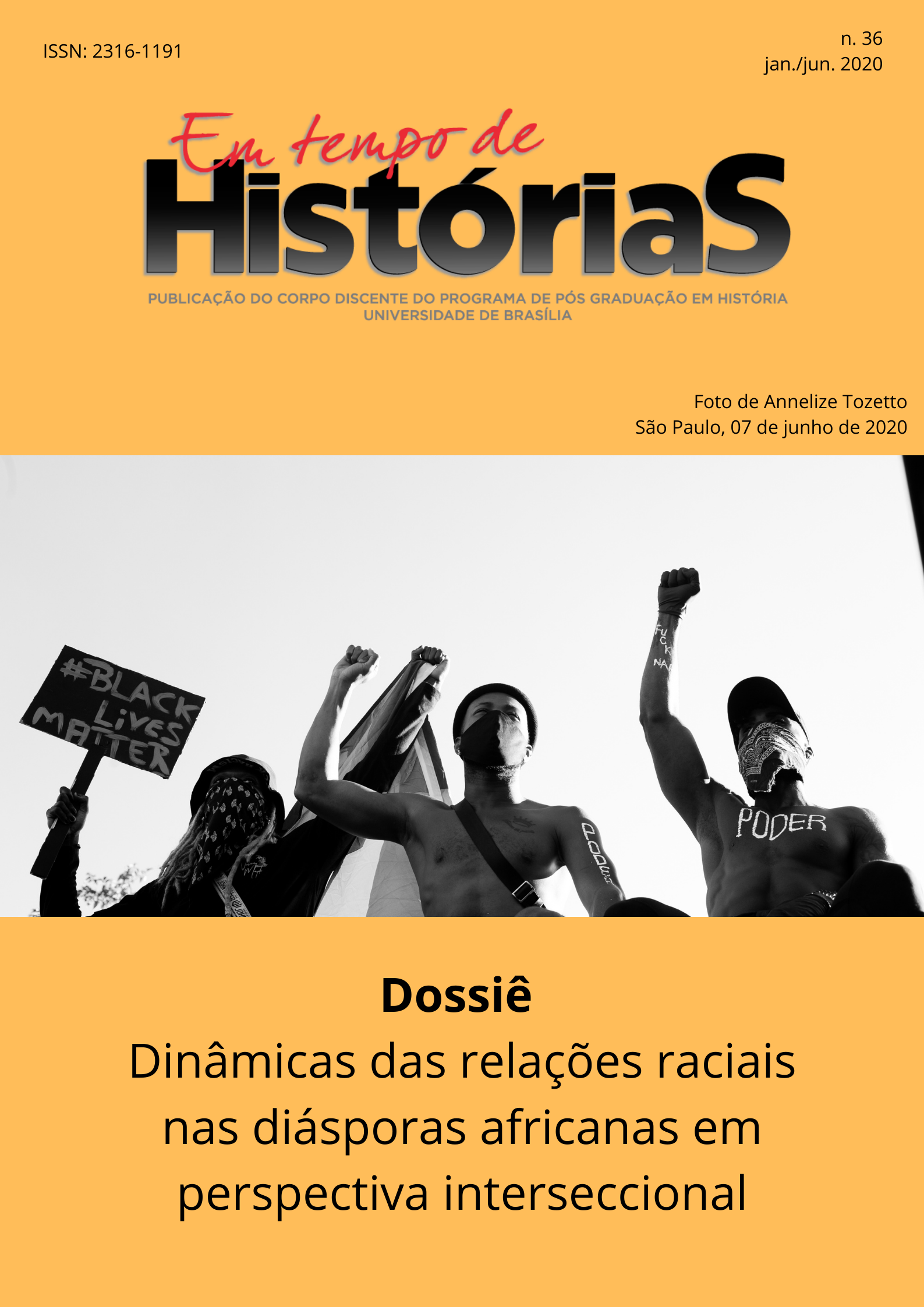Imperialism in the classroom
an analysis of the PNLD 2020 History textbooks
DOI:
https://doi.org/10.26512/emtempos.v1i36.30731Keywords:
Textbook. Imperialism. Colonialism. PNLD.Abstract
Annually, as Brazilian public schools, it receives didactic works from the National Textbook Program. The last evaluation carried out was related to the year 2020, which was evaluated books for the last years of Elementary School. One of the areas covered by the PNLD is the discipline of History, which had a total of eleven collections available for teachers to choose from. In this last PNLD, the works should be in accordance with the Common National Curricular Base proposed for each discipline that constitutes the curriculum of students in Brazilian schools. In view of this, the present work sought to analyze the chapters that worked with the theme of Imperialism in the eighth-year books of Elementary Education in the collections made available for evaluation by teachers, seeking to understand the interpretations of their authors on this historical phenomenon, the conceptual approach employed and imagery available throughout the evaluated chapters.
Downloads
References
Fontes (Livros didáticos)
BOULOS JUNIOR, Alfredo. História sociedade & cidadania: 8º ano. São Paulo: FTD, 2018.
BRAICK, Patrícia Ramos. Estudas hitória: das origens do homem à era digital. São Paulo: Moderna, 2018.
CAMPOS, Flávio de. História: escola e democracia. São Paulo: Moderna, 2018.
COTRIM, Gilberto. Historiar, 8º ano. São Paulo: Saraiva, 2018.
DIAS, Adriana Machado. Vontade de saber história. São Paulo: Quinteto Editorial, 2018.
EDITORA MODERNA. Araribá mais: história. São Paulo: Moderna, 2018.
MINORELLI, Caroline Torres. Convergências história. São Paulo: Edições SM, 2018.
NEMI, Ana Lúcia Lana. Geração Alpha História: ensino fundamental. São Paulo: Edições SM, 2018.
SERIACOPI, Gislane Campos Azevedo. Inspire história: 8º ano. São Paulo: FTD, 2018.
VAINFAS, Ronaldo. História.doc. São Paulo: Saraiva, 2018.
VICENTINO, Cláudio. Teláris história: 8º ano. São Paulo: Ática, 2018
Bibliografia
BITTENCOURT, Circe. “Livros didáticos entre textos e imagens”. IN: BITTENCOURT, Circe (Org.). O saber histórico na sala de aula. São Paulo: Contexto, 2004, p. 69-90.
BITTENCOURT, Circe. “Livros e Materiais Didáticos de História”. IN: Ensino de História: fundamentos e métodos. São Paulo: Cortez, 2008, pp. 291-324.
BRUNSCHWING, Henri. A partilha da África Negra. São Paulo: Perspectiva, 2013.
FND. Programa dos Livros. Link: https://www.fnde.gov.br/index.php/programas/programas-do-livro/pnld/dados-estatisticos Acessado em 06 de abril de 2020 Ã s 15h15.
HOCHSCHILD, Adam. O fantasma do rei Leopoldo: uma história de voracidade, terror e heroísmo na África colonial. Lisboa: Editorial Caminho, 2001.
LUCA, Tânia Regina de. Livro didático e Estado: explorando possibilidades interpretativas. In: ROCHA, Helenice Aparecida Bastos, REZNIK, Luís & MAGALHÃES, Marcelo de Souza. A história na escola: autores, livros e leituras. Rio de Janeiro: Editora FGV, 2009, p. 151-172.
MATOS, Júlia Silveira. Os livros didáticos como produtos para o Ensino de História: uma análise do Plano Nacional do Livro Didático ”“ PNLD.Historiae, Rio Grande, 3 (3), 2012, pp. 165-184.
MINISTÉRIO DA EDUCAÇÃO. Base Nacional Comum Curricular. Brasília: MEC, 2019.
MINISTÉRIO DA EDUCAÇÃO. Guia Digital do PNLD 2020. Brasília: MEC, 2019.
MIRANDA, Sonia Regina; LUCA, Tania Regina de. O livro didático de história hoje: um panorama a partir do PNLD. Revista Brasileira de História. São Paulo, v. 24, n. 48, 2004, pp. 123-144.
MONTEIRO, Heloisa Helena Tourinho. “O ensino de história na educação básica”. IN: GUERRA FILHO, Sérgio A. D.; SANTOS, Fabrício Lyrio (Orgs.). Ensinar História no século XXI: dilemas e perspectivas. Cruz das Almas/Bahia: Editora UFRB, 2019, pp. 67-82.
Downloads
Published
How to Cite
Issue
Section
License
Copyright (c) 2020 Em Tempo de Histórias

This work is licensed under a Creative Commons Attribution-NonCommercial 4.0 International License.
Autores que publicam nesta revista concordam com os seguintes termos:
- Autores mantém os direitos autorais e concedem à revista o direito de primeira publicação, sendo o trabalho simultaneamente licenciado sob a Creative Commons Attribution License , licença que permite que outros remixem, adaptem e criem a partir do seu trabalho para fins não comerciais, e embora os novos trabalhos tenham de lhe atribuir o devido crédito e não possam ser usados para fins comerciais, os usuários não têm de licenciar esses trabalhos derivados sob os mesmos termos.
- Autores têm autorização para assumir contratos adicionais separadamente, para distribuição não-exclusiva da versão do trabalho publicada nesta revista (ex.: publicar em repositório institucional ou como capítulo de livro), com reconhecimento de autoria e publicação inicial nesta revista.
- Autores têm permissão e são estimulados a publicar e distribuir seu trabalho online (ex.: em repositórios institucionais ou na sua página pessoal) a qualquer ponto antes ou durante o processo editorial, já que isso pode gerar alterações produtivas, bem como aumentar o impacto e a citação do trabalho publicado (Veja O Efeito do Acesso Livre).













